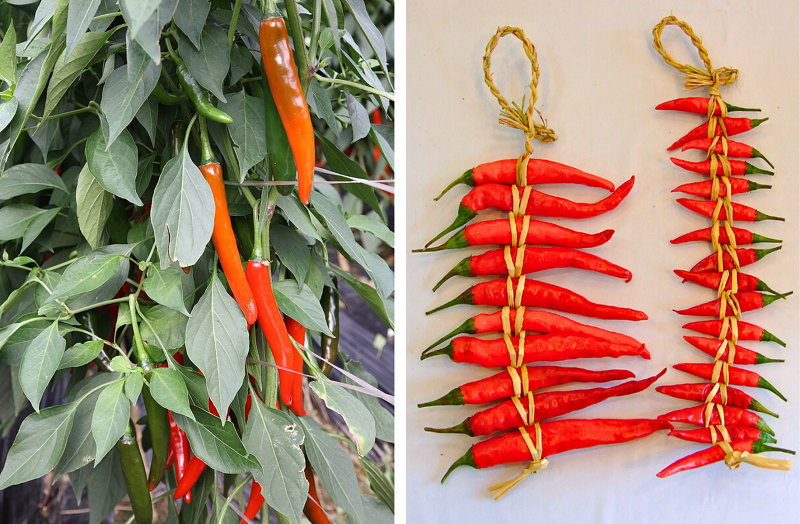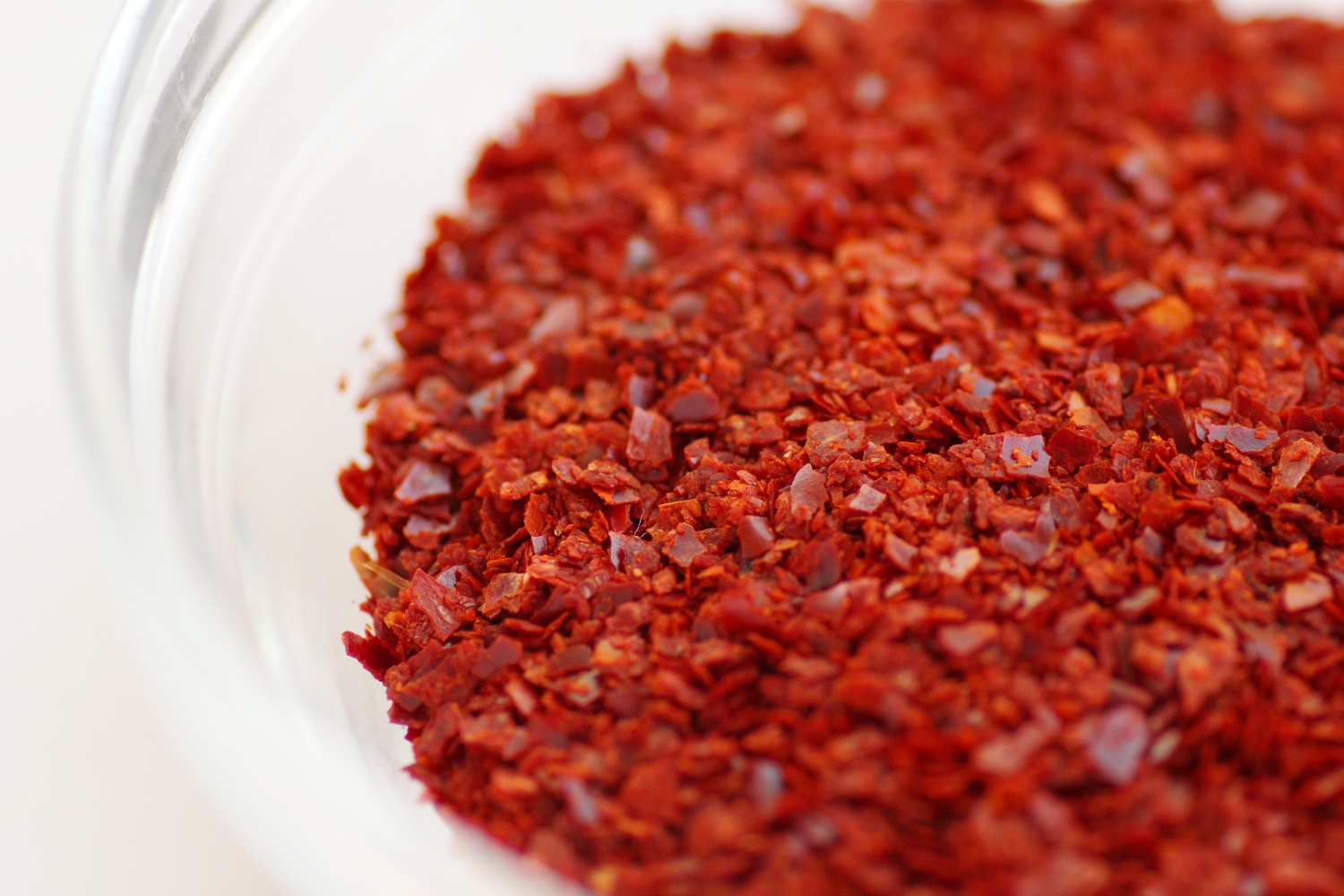The Gochugaru pepper, of medium size, comes from the Capsicum annuum species. Long, thin, and with a moderate spiciness estimated at about 2000 SHU, it offers a slightly stronger heat than Espelette pepper. Its bright red color is synonymous with quality and freshness. Culinary enthusiasts will appreciate its sweet and smoky aromas, offering a perfect balance between sweetness and spicy intensity.
The term gochugaru is derived from "gochutgaru" in Korean, where "gochu" means pepper and "garu" means powder.














